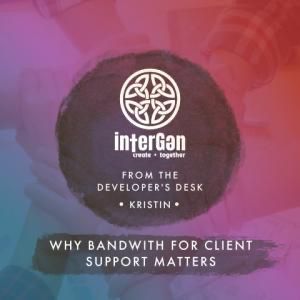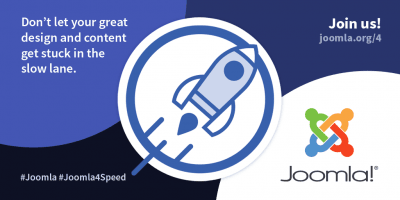
How we create • together at interGen
From social media to measuring performance to simply managing your website, there are a lot of details to cover. InterGen operates on the idea that your website, your social media, and your data are yours. Our job is to make sure that you are getting the most out of your digital resources in the easiest, most convenient way possible. Helping people, businesses, organizations, and communities move forward together is an exciting endeavor that fuels us. Beyond just programming your website, our passion can move your business forward.

- Details
- By: The interGen Team
- Category: Blog
At interGen, we build your new website with a clear and efficient process, modeled after the best practices used in software development. This ensures your site is not only beautifully designed but also robust and functional. Our typical timeline for developing a new website spans 6-8 weeks, starting from the moment we receive:
- A signed contract
- Your initial payment
- 100% of all the necessary content and assets (like text, images, videos, etc.) tailored to your chosen package
We can not start development until we have all three of the above items. Once we get through the development process, we send the site to you for review. How long this review process takes depends on how many changes you decide to make.

- Details
- By: Kristin Bird • Support Team Lead
- Category: Blog
We intentionally don't use the term "customer service" to describe interGen's support, training, and problem-solving solutions. Technological innovation may have helped us all become faster and more efficient at resolving customer issues. However, endless automated phone systems, outsourced technicians with limited authority, chatbot loops, and complicated support forums can radically depersonalize the experience.
Clients end up feeling aggravated and dissatisfied rather than served and supported.
Prioritizing personal, skilled, and timely support saves clients time and effort: two of the most precious commodities for today's consumers. When providing exceptional client support is a critical feature - rather than an unavoidable cost - businesses and organizations keep people's needs at the forefront of every interaction.
Being intentionally people-focused leads to greater satisfaction and profit for team members, clients, and everyone in between.

- Details
- By: Kristin Bird
- Category: Blog
If you log in to the back of your website, you might be aware of notifications that have been showing up recently. They say something similar to…
⚠ Error: Support has ended for your version of Joomla 3.10. Migrate to Joomla 4 as soon as possible. ⚠
First of all, we want to reassure you that your website should continue to work after August 2023 just as it does now. However, now is the time to migrate your site to Joomla 4, the most recent version of the software that runs your site. We've been eagerly anticipating Joomla! 4 since early 2021 and we’ve got 2 Joomla Certified professionals on our staff who are loving working with it in our newest site builds! Joomla 4 provides a number of technical improvements, new features and significant performance upgrades that will make your site faster, perform better in search engines, easier to manage, and so much more!
Joomla 4 Migration Frequently Asked Questions
We know you have questions about this migration. Check out our answers to the most frequently asked questions we're getting from clients. Have a question we didn’t answer? Get in touch
- Details
- By: Kristin Bird
- Category: Joomla 4 Migration FAQs
PHP 7.4 reached its end of life on November 28, 2022, meaning it—along with any previous versions—no longer receives security updates or patches. Running your website on an outdated PHP version poses several risks:
- Security Vulnerabilities: Without updates, your site is more exposed to security threats and hacking attempts.
- Compatibility Issues: New software and extensions may not work with outdated PHP, causing parts of your site to break.
- Performance Problems: Older PHP versions can slow down your website, impacting speed and user experience.
To keep your site secure and fully functional, it’s essential to upgrade to Joomla 4 and run a supported PHP version (PHP 8.0 or higher).
What This Means for You:
interGen has upgraded PHP to 8.0+ for clients whenever possible. If you received a notice that your site is still on PHP 7.4, we cannot upgrade your PHP without ALSO completing the Joomla migration.
Contact us to schedule your Joomla 4 migration and PHP upgrade.
- Details
- By: Kristin Bird
- Category: Joomla 4 Migration FAQs
One of the reasons we love Joomla! is because they consistently adapt to stay current with the fast pace of technology in today’s world. What that looks like today: Joomla 5 is currently available. Not only is interGen building all of our new client sites in Joomla 5, we are also automatically updating any of our Joomla 4 sites to the new Joomla 5 platform at no cost. Learn more
Every Joomla 4 migration that we’ve done is also compatible with Joomla 5. This means that the earliest your website might need another migration would be Fall 2027 - when Joomla 5 will no longer be supported.
- Details
- By: Kristin Bird
- Category: Joomla 4 Migration FAQs
Migration can be a complicated process that almost always requires significant web developer expertise. Most extensions have a well-defined process for migrating the content and functionality of your current site to Joomla 4.
If you want to try to do the migration on your own, we can set up a development version of your site on the server where you can work on trying to migrate yourself. The cost for that dev site is $25/month (or $250/year). If you need interGen’s assistance once you get started, we would be happy to help at our hourly development rate of $150/hour.
We provide this information for transparency - we STRONGLY recommend you not attempt the migration without an experienced developer.
- Details
- By: Kristin Bird
- Category: Joomla 4 Migration FAQs
The terms migration, upgrade, and update are commonly used interchangeably, but they are different processes.
An Update is when you install the newest stable version of a program or extension over the top of the older version (all data and settings are retained). Updates include bug fixes, security fixes, and can include several patches. They increment update releases (sometimes called bug or patch releases) by the third digit (3.10.9 to 3.10.10) and happen ad hoc whenever needed. For example, in June, Joomla 3.10.10 was released that included a few very minor bug fixes.
We include updates as part of the weekly maintenance we do on your site.
An Upgrade is similar to an update, but will often include new features in addition to simple fixes and patches. An upgrade is when an application is moved from one minor point release to another. They increment the releases by the second digit (3.9 to 3.10) and are scheduled to happen every six months. For example, in August of 2021, Joomla 3.10.0 was released. The key new feature provided in this upgrade, was a compatibility checker that helps make the migration to Joomla 4 easier.
Upgrades are also included in the weekly maintenance we do on your site.
A Migration is the most complex as it involves “migrating” data from an old system to a new system. Migrations often include major software overhauls, and they increment releases by the first digit (Joomla 3 to Joomla 4).
Migrations involve creating a staged or sandbox version of your site (not accessible to the public) and working through the process to export all your content, extensions, templates, and data from the old software and importing it into the new software. Because of the significant software overhaul involved in migrations, the import process often causes major site errors that have to be identified and resolved. Sometimes, if sites are significantly out of date they have to be completely rebuilt in the new software version. Migrations happen years apart and have historically gotten less complicated (and less costly) with each major release of Joomla. There have only been 4 major releases (3 migrations) since Joomla was created 17 years ago.
Due to the infrequency, expertise, and time required to do migrations, these are not included in regular site maintenance. We work with our clients to plan for migrations for both Joomla and other extensions in a way that allows you to budget for the costs and causes little to no downtime for your website.
- Details
- By: Kristin Bird
- Category: Joomla 4 Migration FAQs
Joomla 4 was released in August 2021. Any site that we either built or redesigned after August 2021 was built in Joomla 4. If you have questions about the timeline of your website’s build and how it impacts your need for migration, please contact us.
- Details
- By: Kristin Bird
- Category: Joomla 4 Migration FAQs
If you have already approved Joomla 4 migration with our interGen team
We will continue to provide all necessary security support for your Joomla 3 site until we are able to complete the migration process. Your website will continue to work until we are able to complete the migration just as it does now.
If you have not yet approved Joomla 4 migration with our interGen team
Your current Joomla version (3.10) no longer receives support, which could lead to security risks or functionality issues as server updates occur. We’ll continue to host and support your site, but updates may be limited without Joomla 4. If your site stops functioning properly prior to migration approval and you require a rush on fixing your site, there will be additional costs.
Contact us to learn more about how to approve migration
- Details
- By: Kristin Bird
- Category: Joomla 4 Migration FAQs
Your Website Is Vulnerable
Joomla! updates are essential to make sure your website is safe, up to date with Joomla!’s new features, security fixes, improvements, and bug fixes. When a CMS (Content Management System) changes its structure, the old version is no longer supported. This creates potential problems with security as security patches are discontinued, and older versions of Joomla! are not maintained. After August 2023, security updates are no longer guaranteed, which may put websites at an increased risk of breaking and/or having other issues.
Your Website Might Break
We keep all your website software up to date as part of the hosting and subscription packages for our clients. After August 2023, when we run other critical updates to our servers (or to the extensions and components working behind the scenes on your site), websites not yet migrated to Joomla 4 might stop working and require custom development work not included in your subscription to accommodate older code.
Your Website Performance Might Suffer
Having the latest version of Joomla! and updated extensions and components is important for your site speed. In each newly released version, there are multiple code improvements that translate into better site performance - which also improves your placement in Search Engine results!
